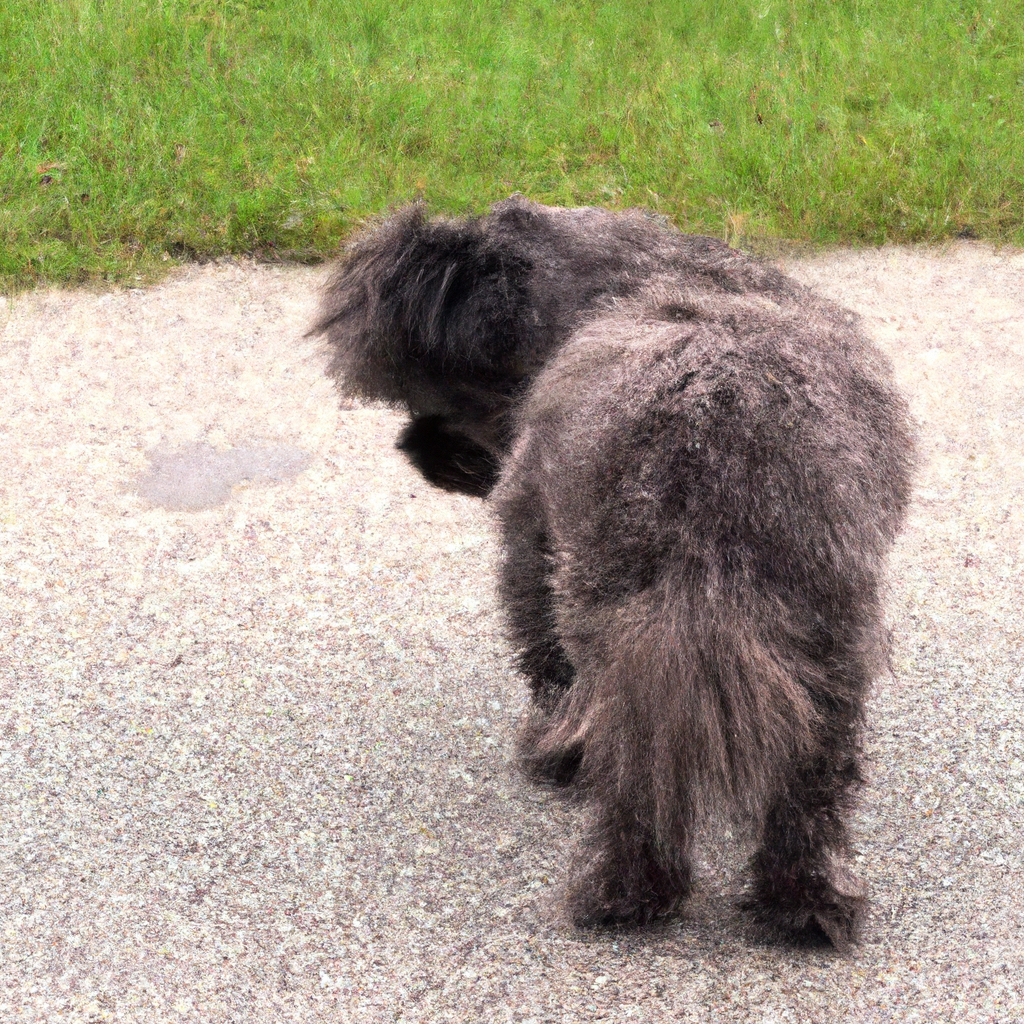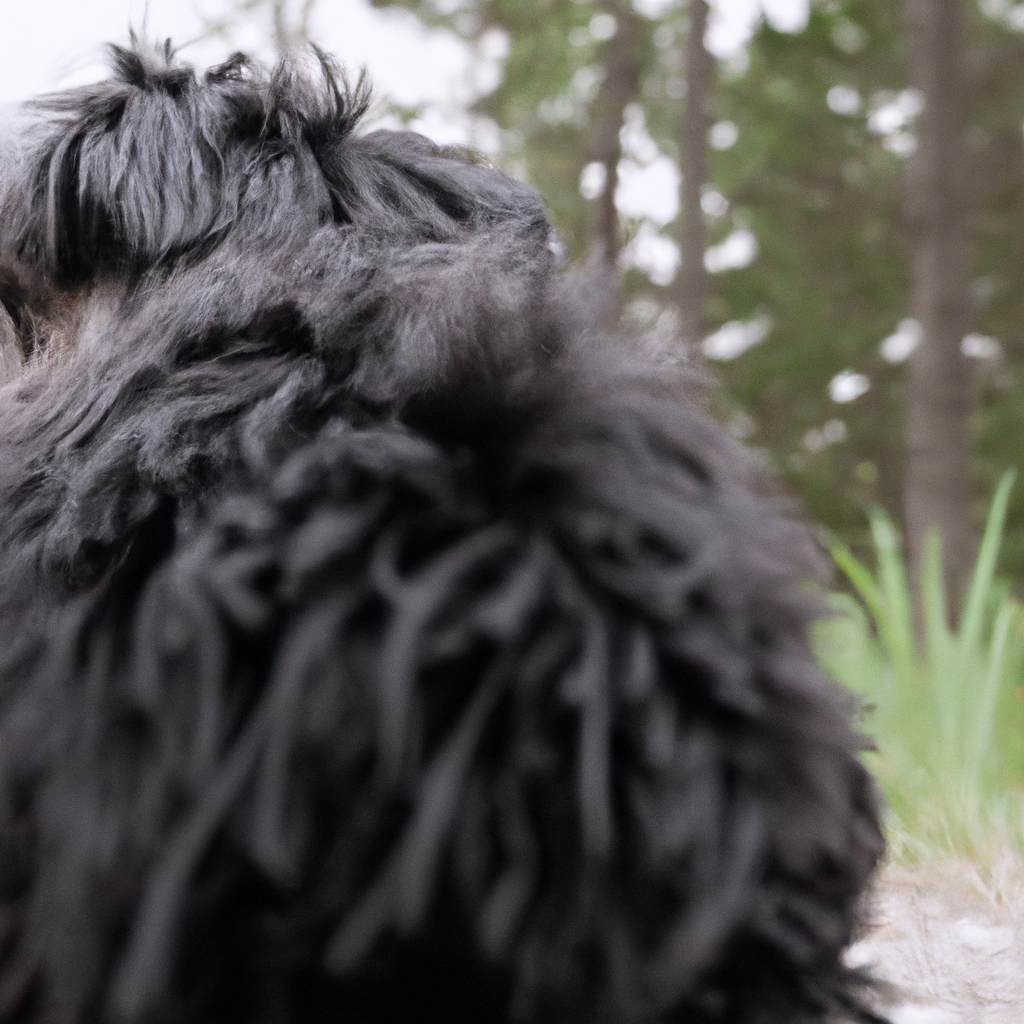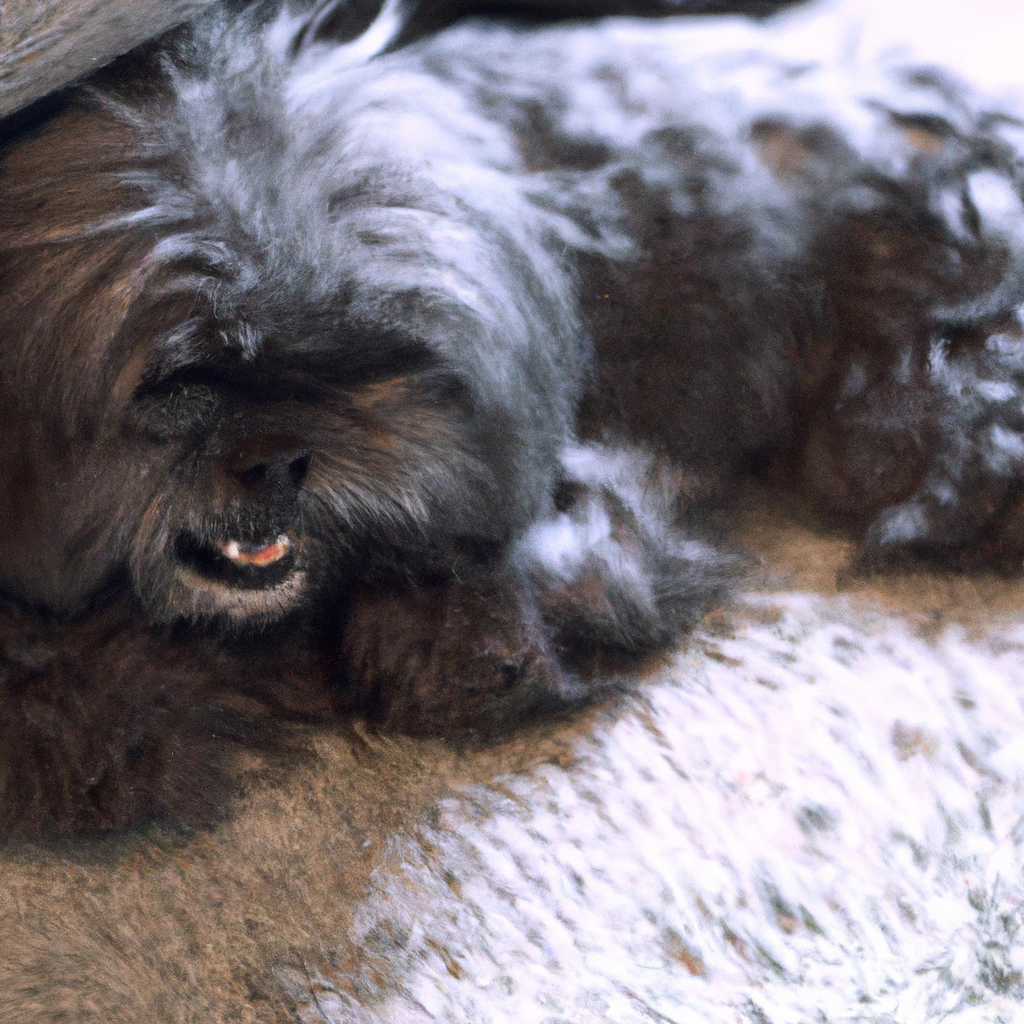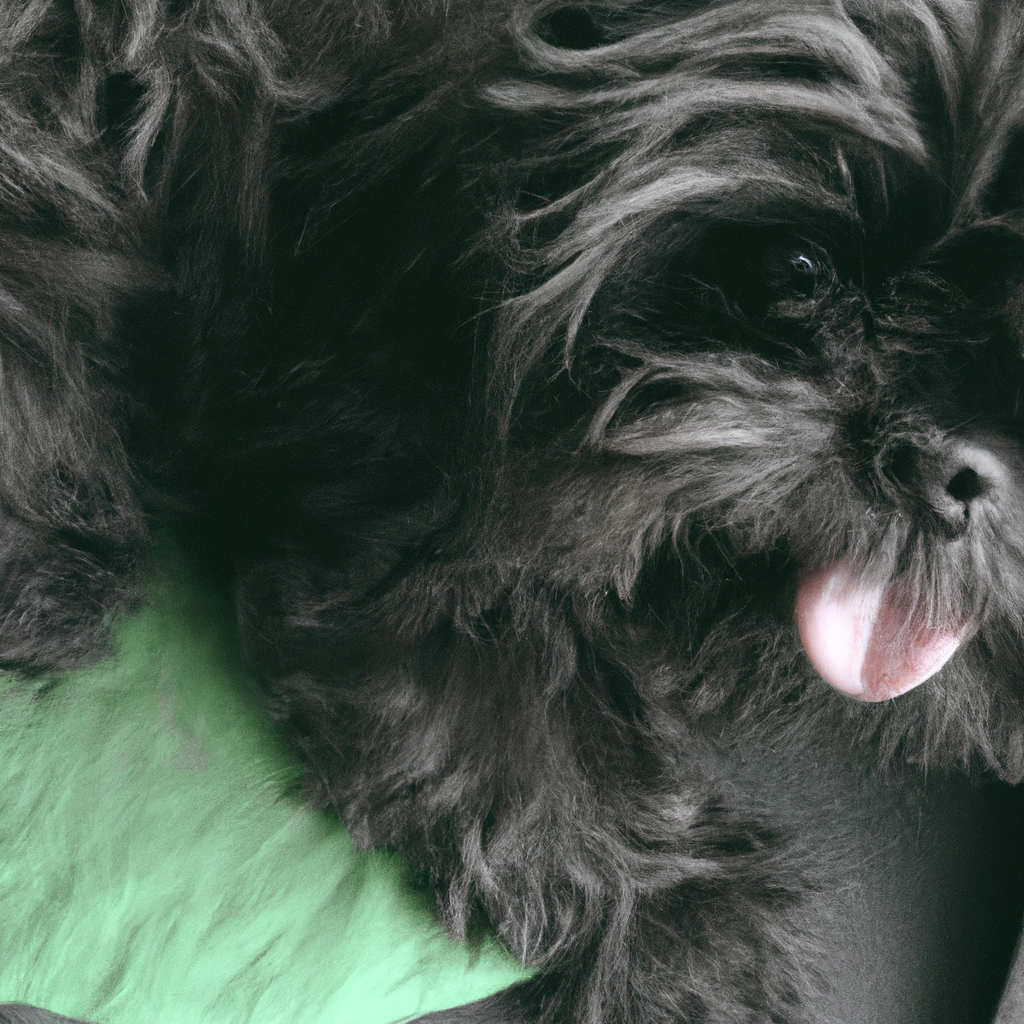Understanding Affenpinschers and their behavioral concerns involves studying this unique breed of small dogs known for their distinctive appearance and lively personality. Originating from Germany, Affenpinschers are often characterized by their monkey-like faces, hence their name which translates to “monkey terrier”. Despite their small size, they are known for their bold and protective nature. However, like any breed, they can exhibit certain behavioral concerns. These may include stubbornness, excessive barking, and potential aggression if not properly socialized. Understanding these concerns is crucial for potential owners to ensure they can provide a suitable environment for this spirited breed.
Understanding the Unique Personality Traits of Affenpinschers
Affenpinschers, often referred to as “Monkey Terriers” due to their distinct primate-like appearance, are a unique breed of toy dogs that originated in Germany. These small, sturdy dogs are known for their playful and adventurous spirit, but they also have a few behavioral concerns that potential owners should be aware of. Understanding these unique personality traits can help you decide if an Affenpinscher is the right fit for your family.
Affenpinschers are known for their bold and confident demeanor. Despite their small size, they are fearless and often act as if they are much larger than they actually are. This can sometimes lead to confrontations with other dogs, especially larger ones. They are also known to be quite stubborn, which can make training a bit of a challenge. However, with consistent, positive reinforcement methods, they can be trained effectively.
One of the most endearing traits of Affenpinschers is their sense of humor. They are known to be quite entertaining and love to play and engage in mischief. This playful nature can sometimes get them into trouble, but it also makes them a joy to be around. They are great companions for those who appreciate a dog with a lively and spirited personality.
Despite their playful nature, Affenpinschers also have a protective side. They are very loyal to their families and can be quite territorial. This can lead to excessive barking, especially when they perceive a threat. While this makes them excellent watchdogs, it can also be a nuisance if not properly managed. Training and socialization from a young age can help mitigate this behavior.
Affenpinschers are also known to be quite independent. They enjoy their own company and can be content spending time alone. However, they also crave attention and affection from their owners. If left alone for too long, they can develop separation anxiety, which can lead to destructive behavior. Therefore, they are best suited to families where someone is home most of the time.
Despite their small size, Affenpinschers are quite energetic and require regular exercise to keep them healthy and happy. They love to play and explore, and will need plenty of toys and activities to keep them occupied. Without proper exercise and mental stimulation, they can become bored and may resort to destructive behavior.
In terms of their relationship with children and other pets, Affenpinschers can be a bit of a mixed bag. They are generally good with children, but their small size makes them vulnerable to rough handling. Therefore, they are best suited to families with older children who understand how to interact with them gently. As for other pets, they can get along well with them, especially if they are raised together. However, their territorial nature can sometimes lead to conflicts, especially with other dogs.
In conclusion, Affenpinschers are a unique breed with a lot of personality packed into a small package. They are playful, independent, and protective, but can also be stubborn and territorial. Understanding these traits can help potential owners provide the right environment for these little dogs to thrive. With the right training, socialization, and care, an Affenpinscher can make a wonderful addition to the right family.
Addressing Behavioral Concerns in Affenpinschers: A Comprehensive Guide
Affenpinschers, often referred to as “Monkey Terriers” due to their distinct primate-like appearance, are a small but mighty breed. These dogs are known for their playful and adventurous spirit, but like any breed, they can also have their share of behavioral concerns. Understanding these concerns and knowing how to address them is crucial for any Affenpinscher owner.
Affenpinschers are generally friendly and sociable dogs, but they can be somewhat territorial. This trait can lead to aggressive behavior if not properly managed. They are known to be protective of their food, toys, and space, and may react negatively if they feel threatened. This behavior is not necessarily a sign of a bad temperament, but rather a natural instinct that can be curbed with proper training and socialization.
One of the most effective ways to address this territorial behavior is through early socialization. Exposing your Affenpinscher to a variety of people, animals, and environments at a young age can help them become more comfortable in different situations and reduce their territorial instincts. Regular interaction with other dogs can also help them learn how to share and play nicely.
Another common behavioral concern in Affenpinschers is their high energy levels. These dogs are active and love to play, but if they don’t get enough exercise, they can become restless and destructive. Regular walks, playtime, and mental stimulation can help keep your Affenpinscher happy and well-behaved. Puzzle toys and interactive games can also be a great way to keep them mentally stimulated and prevent boredom.
Affenpinschers are also known for their stubborn streak. This can make training a bit of a challenge, but with patience and consistency, it’s certainly not impossible. Positive reinforcement methods, such as treats and praise, can be very effective in training Affenpinschers. It’s important to start training early and to be consistent with your commands and expectations. Remember, Affenpinschers are intelligent dogs and they can quickly pick up on inconsistencies in your training.
Separation anxiety is another behavioral concern that can affect Affenpinschers. These dogs form strong bonds with their families and can become distressed when left alone for long periods. If you notice signs of separation anxiety, such as excessive barking, chewing, or pacing, it’s important to address this issue as soon as possible. Gradual desensitization, where you slowly increase the amount of time your dog spends alone, can be an effective way to manage separation anxiety. You can also consider hiring a pet sitter or taking your dog to a daycare facility if you’re away for long periods.
In conclusion, while Affenpinschers can have their share of behavioral concerns, these issues can be effectively managed with the right approach. Early socialization, regular exercise, consistent training, and addressing separation anxiety are all key to raising a well-behaved Affenpinscher. Remember, every dog is unique and what works for one may not work for another. It’s important to understand your Affenpinscher’s individual needs and personality to provide the best care possible. With patience, understanding, and a little bit of work, you can help your Affenpinscher become a well-adjusted and happy member of your family.
The Affenpinscher Temperament: What to Expect
Affenpinschers, often referred to as “Monkey Terriers” due to their distinct primate-like appearance, are small but mighty dogs that are known for their spunky and adventurous spirit. These dogs, originating from Germany, are not just adorable but also possess a unique temperament that sets them apart from other breeds. Understanding the Affenpinscher temperament is crucial for anyone considering adopting or buying this breed, as it can help ensure a harmonious relationship between the dog and its owner.
Affenpinschers are known for their bold and confident demeanor. Despite their small size, they are fearless and won’t hesitate to stand up to larger dogs or unfamiliar people. This bravery, while admirable, can sometimes lead to trouble if not properly managed. It’s important for owners to establish boundaries and provide consistent training from a young age to prevent their Affenpinscher from becoming overly aggressive or territorial.
Another key aspect of the Affenpinscher temperament is their high energy levels. These dogs are always on the go and love to play and explore. They require regular exercise to keep them physically fit and mentally stimulated. Without enough activity, Affenpinschers can become bored and may resort to destructive behaviors such as chewing or digging. Therefore, it’s essential for owners to provide plenty of toys and opportunities for play to keep their Affenpinscher happy and healthy.
Despite their feisty nature, Affenpinschers are also known for their deep loyalty and affection towards their owners. They form strong bonds with their human families and often become protective of them. This loyalty, combined with their alertness, makes them excellent watchdogs. However, their protective nature can sometimes lead to excessive barking, which can be a concern for those living in apartments or close quarters with neighbors.
Affenpinschers are also intelligent and curious dogs. They love to investigate their surroundings and are quick to learn new tricks. However, their intelligence can sometimes lead to stubbornness, making training a bit of a challenge. Positive reinforcement methods work best with this breed, as they respond well to treats and praise. Patience and consistency are key when training an Affenpinscher.
While Affenpinschers are generally good with children and other pets, they can be a bit reserved with strangers. Early socialization is important to help them feel comfortable around new people and environments. Regular exposure to different sights, sounds, and experiences can help reduce any anxiety or fearfulness your Affenpinscher may have.
In conclusion, the Affenpinscher is a small dog with a big personality. They are brave, energetic, loyal, and intelligent, but can also be stubborn and protective. Understanding these aspects of the Affenpinscher temperament is crucial for potential owners. With the right training, socialization, and care, an Affenpinscher can make a wonderful and entertaining companion. However, they are not the right fit for everyone. Those considering this breed should be prepared for their high energy levels, need for mental stimulation, and potential for stubbornness. But for those who are up for the challenge, the rewards of owning an Affenpinscher are immeasurable.
Training Tips for Affenpinschers: Overcoming Behavioral Challenges

Affenpinschers, often referred to as “Monkey Terriers” due to their distinct primate-like appearance, are a small but mighty breed. These dogs are known for their playful and adventurous spirit, but they can also present some unique behavioral challenges. Understanding these challenges and knowing how to address them can make all the difference in your relationship with your Affenpinscher.
Affenpinschers are naturally curious and energetic, which can sometimes translate into stubbornness. They are intelligent and quick learners, but their independent nature can make training a bit of a challenge. They may not always respond to commands immediately, not because they don’t understand, but because they’re deciding whether or not they want to comply. This is where patience and consistency come into play.
Training an Affenpinscher requires a gentle but firm hand. Harsh training methods can lead to fear and anxiety, which can exacerbate behavioral issues. Instead, focus on positive reinforcement. Reward your Affenpinscher for good behavior with treats, praise, or playtime. This will help them associate obedience with positive outcomes, making them more likely to comply with commands in the future.
Another common behavioral concern with Affenpinschers is their tendency to be territorial. They are naturally protective of their family and their space, which can lead to aggression if not properly managed. Socialization is key to overcoming this issue. Expose your Affenpinscher to a variety of people, places, and situations from a young age. This will help them become more comfortable in different environments and reduce their tendency to be overly protective.
Affenpinschers are also known for their high energy levels. Without proper outlets for this energy, they can become bored and destructive. Regular exercise is crucial for this breed. Daily walks, playtime in the yard, or even agility training can help keep your Affenpinscher physically and mentally stimulated. Providing them with toys that challenge their intelligence can also help prevent boredom and destructive behavior.
Despite their small size, Affenpinschers can be quite vocal. They are known for their distinctive bark, which they use to communicate their needs and alert their family to potential threats. While this can be a useful trait, it can also become a nuisance if not properly managed. Training your Affenpinscher to understand and respond to commands like “quiet” can help control excessive barking.
Lastly, it’s important to remember that every Affenpinscher is unique. What works for one dog may not work for another. It’s crucial to understand your Affenpinscher’s individual personality and tailor your training methods accordingly. Patience, consistency, and understanding are key when training this breed.
In conclusion, while Affenpinschers can present some behavioral challenges, they are also incredibly rewarding pets. Their playful, adventurous spirit and loyal nature make them wonderful companions. With the right approach to training, you can help your Affenpinscher overcome their behavioral challenges and become a well-behaved member of your family. Remember, the key to successful training is understanding your dog’s unique personality and needs, and responding with patience, consistency, and positive reinforcement.
Affenpinschers and Aggression: Causes and Solutions
Affenpinschers, often referred to as “Monkey Terriers” due to their distinct primate-like appearance, are small but mighty dogs known for their playful and adventurous spirit. However, like any breed, they can exhibit certain behavioral concerns, one of which is aggression. Understanding the causes and solutions for this behavior is crucial for any Affenpinscher owner or enthusiast.
Affenpinschers are naturally protective and territorial, which can sometimes manifest as aggression. This is not necessarily a sign of a ‘bad’ dog, but rather an instinctual response to perceived threats. This breed is known for its loyalty and protective nature, which can be a double-edged sword. On one hand, they make excellent watchdogs, but on the other, they can become overly protective, leading to aggressive behavior.
One common trigger for aggression in Affenpinschers is fear. These dogs are small in size, and what they lack in stature, they often make up for in bravado. If they feel threatened or scared, they may respond with aggression as a defense mechanism. This can be triggered by a variety of situations, such as loud noises, unfamiliar people or animals, or changes in their environment.
Another cause of aggression in Affenpinschers can be related to their high energy levels. These dogs are active and require regular exercise to burn off their energy. If they don’t get enough physical activity, they can become frustrated, which may lead to aggressive behavior.
Now that we’ve identified some of the potential causes of aggression in Affenpinschers, let’s explore some solutions. The first step in addressing aggression is to consult with a professional. A veterinarian or a certified animal behaviorist can help identify the root cause of the aggression and suggest appropriate interventions.
Training is a crucial part of managing aggression in Affenpinschers. Obedience training from a young age can help establish boundaries and teach your dog appropriate behavior. Socialization is also key. Exposing your Affenpinscher to a variety of people, animals, and environments can help them become more comfortable in different situations and reduce fear-based aggression.
Exercise is another important factor in managing aggression. Regular physical activity can help your Affenpinscher burn off excess energy and reduce frustration. This can be as simple as daily walks or playtime in the yard. Mental stimulation is equally important. Puzzle toys, training exercises, and interactive games can help keep your Affenpinscher’s mind sharp and engaged.
Lastly, positive reinforcement is a powerful tool in managing aggression. Rewarding your Affenpinscher for good behavior, rather than punishing them for aggression, can help reinforce positive behaviors and discourage negative ones. This can be as simple as giving them a treat or a favorite toy when they behave well.
In conclusion, while Affenpinschers can exhibit aggressive behavior, it’s important to remember that this is often a response to fear, frustration, or a perceived threat. By understanding the causes of aggression and implementing appropriate solutions, you can help your Affenpinscher become a well-behaved and happy member of your family. Remember, every dog is unique, and what works for one may not work for another. Patience, consistency, and love are key in managing any behavioral concern.
The Affenpinscher’s Barking Behavior: How to Manage It
Affenpinschers, often referred to as “Monkey Terriers” due to their distinct primate-like appearance, are small but mighty dogs known for their playful and adventurous spirit. These dogs are full of energy and have a strong protective instinct, which often manifests in their barking behavior. Understanding this behavior and learning how to manage it is crucial for any Affenpinscher owner.
Affenpinschers are known for their alertness and vigilance, which makes them excellent watchdogs. They are quick to sound the alarm at any perceived threat, often leading to frequent barking. This barking behavior is not necessarily a sign of aggression, but rather a reflection of their protective nature and their desire to alert their family of potential danger. However, this can become a problem if it turns into excessive barking.
Excessive barking can be triggered by a variety of factors. For Affenpinschers, common triggers include boredom, anxiety, or a response to environmental stimuli such as unfamiliar sounds or sights. It’s important to understand that while barking is a natural behavior for dogs, excessive barking can be a sign of underlying issues that need to be addressed.
Managing an Affenpinscher’s barking behavior requires patience, consistency, and understanding. One effective strategy is to provide plenty of physical and mental stimulation. Affenpinschers are active dogs that require regular exercise to burn off energy. Providing them with toys and engaging them in playtime can help reduce boredom, one of the common triggers for excessive barking. Mental stimulation can be achieved through training exercises and puzzle toys that challenge their problem-solving skills.
Another strategy is to use positive reinforcement training. This involves rewarding your Affenpinscher for quiet behavior and ignoring or redirecting their attention when they bark excessively. For instance, if your Affenpinscher starts barking at a passerby, you can redirect their attention to a toy or treat. Once they stop barking and focus on the toy or treat, you can reward them with praise or a small treat. This helps them associate quiet behavior with positive outcomes.
In some cases, excessive barking may be a sign of separation anxiety. Affenpinschers are known for their strong attachment to their families and can become anxious when left alone for extended periods. If you suspect that your Affenpinscher’s barking is due to separation anxiety, it’s important to address this issue. This may involve gradually acclimating them to being alone, providing them with comforting items such as a piece of your clothing, or consulting with a professional dog trainer or behaviorist.
Lastly, it’s important to remember that while barking can be frustrating, it’s a key part of your Affenpinscher’s communication. Instead of trying to eliminate barking entirely, the goal should be to manage it and reduce it to a level that is acceptable for both you and your dog. Understanding the reasons behind your Affenpinscher’s barking and addressing them in a patient and consistent manner can help create a peaceful and harmonious living environment.
In conclusion, Affenpinschers are lively and protective dogs whose barking behavior can sometimes be a challenge. However, with understanding, patience, and consistent training, it’s possible to manage this behavior effectively. Remember, every Affenpinscher is unique, and what works for one may not work for another. It’s all about finding the right balance that works for you and your furry friend.
Understanding Affenpinschers: Dealing with Separation Anxiety
Affenpinschers, affectionately known as “Monkey Dogs” due to their primate-like appearance and playful nature, are a small breed of dog that originated in Germany. These dogs are known for their loyalty, intelligence, and spunky personality. However, like any breed, Affenpinschers can have their own unique set of behavioral concerns. One of the most common issues that Affenpinscher owners face is separation anxiety.
Separation anxiety is a condition where a dog becomes extremely anxious and distressed when left alone. This can manifest in a variety of ways, including excessive barking, destructive behavior, and even attempts to escape. For Affenpinschers, who are known for their strong attachment to their owners, this can be a particularly challenging issue to deal with.
Understanding why Affenpinschers are prone to separation anxiety is the first step in addressing the problem. These dogs are incredibly social creatures who thrive on interaction and companionship. They form strong bonds with their owners and can become distressed when that bond is disrupted, even for a short period of time. This is not a sign of a poorly behaved dog, but rather a testament to their loyalty and affection.
Dealing with separation anxiety in Affenpinschers requires patience, understanding, and a consistent approach. One of the most effective strategies is to gradually acclimate your dog to being alone. This can be done by leaving your dog alone for short periods of time and gradually increasing the duration. It’s important to make these departures and arrivals as low-key as possible to avoid creating a sense of anxiety or anticipation.
Another effective strategy is to provide your Affenpinscher with plenty of physical and mental stimulation. Regular exercise and playtime can help to burn off excess energy and reduce anxiety. Mental stimulation can be provided through puzzle toys, training exercises, and social interaction. This not only helps to keep your dog’s mind sharp, but it also provides a positive outlet for their energy.
In some cases, professional help may be needed to address severe separation anxiety. A professional dog trainer or behaviorist can provide personalized strategies and techniques to help manage your dog’s anxiety. They can also help to identify any underlying issues that may be contributing to the problem.
It’s important to remember that dealing with separation anxiety is a process, and it can take time for your Affenpinscher to adjust. Patience and consistency are key. With the right approach, you can help your Affenpinscher feel more secure and comfortable when left alone.
In conclusion, while Affenpinschers are prone to separation anxiety due to their social nature and strong attachment to their owners, there are effective strategies to manage this issue. By understanding the root cause of the anxiety, gradually acclimating your dog to being alone, providing plenty of physical and mental stimulation, and seeking professional help if needed, you can help your Affenpinscher overcome their separation anxiety. Remember, every dog is unique and what works for one may not work for another. It’s all about finding the right approach for your Affenpinscher and being patient and consistent in your efforts.
Socializing Your Affenpinscher: Overcoming Shyness and Fear
Affenpinschers, often referred to as “Monkey Terriers” due to their distinct primate-like appearance, are small but sturdy dogs known for their playful and adventurous nature. However, like any breed, they come with their own set of behavioral concerns. One of the most common issues that Affenpinscher owners face is their pet’s shyness and fear, particularly when it comes to socializing.
Affenpinschers are naturally cautious and can be reserved, especially around strangers. This can make socializing them a bit of a challenge. However, it’s important to remember that this shyness is not a sign of a flawed character, but rather a part of their protective nature. They are fiercely loyal to their families and can be wary of unfamiliar people or situations.
Overcoming this shyness and fear requires patience, understanding, and a consistent approach. The key is to expose your Affenpinscher to a variety of social situations gradually and in a controlled manner. This could mean taking them to a dog park, inviting friends over, or even just going for walks in different neighborhoods. The goal is to help them understand that new experiences and people are not threats, but opportunities for fun and exploration.
It’s also crucial to remember that every Affenpinscher is unique, and what works for one may not work for another. Some may respond well to treats and positive reinforcement, while others may need more time and gentle encouragement. It’s all about finding what works best for your individual pet and sticking with it.
One common mistake that Affenpinscher owners make is forcing their pet into social situations too quickly. This can actually exacerbate their fear and make them even more reluctant to socialize. Instead, try to introduce new experiences slowly and give your pet plenty of time to adjust. If they seem overwhelmed, it’s okay to take a step back and try again later.
Another important aspect of socializing your Affenpinscher is building their confidence. This can be achieved through regular training sessions, where they can learn new skills and commands. Not only does this provide mental stimulation, but it also gives them a sense of accomplishment, which can boost their confidence.
In addition, it’s important to provide plenty of positive reinforcement. This means rewarding your Affenpinscher for good behavior, whether it’s with treats, praise, or a favorite toy. This helps them associate socializing with positive experiences, making them more likely to engage in the future.
Lastly, it’s important to remember that socializing your Affenpinscher is a process, not a one-time event. It takes time and consistent effort, but the rewards are well worth it. A well-socialized Affenpinscher is not only happier and more confident, but also healthier, as stress and fear can lead to various health issues.
In conclusion, while Affenpinschers may be naturally shy and fearful, these traits can be managed with patience, understanding, and a consistent approach. By gradually exposing them to new experiences, providing positive reinforcement, and building their confidence, you can help your Affenpinscher overcome their shyness and fear, leading to a happier, healthier pet.In conclusion, understanding Affenpinschers and their behavioral concerns involves recognizing their energetic, curious, and protective nature. These small dogs are known for their loyalty and affection towards their owners, but they can also be stubborn and possessive. They may develop behavioral issues like separation anxiety, aggression, or excessive barking if not properly trained or socialized. Therefore, consistent training, socialization, and a structured environment are crucial for managing and preventing these concerns.





